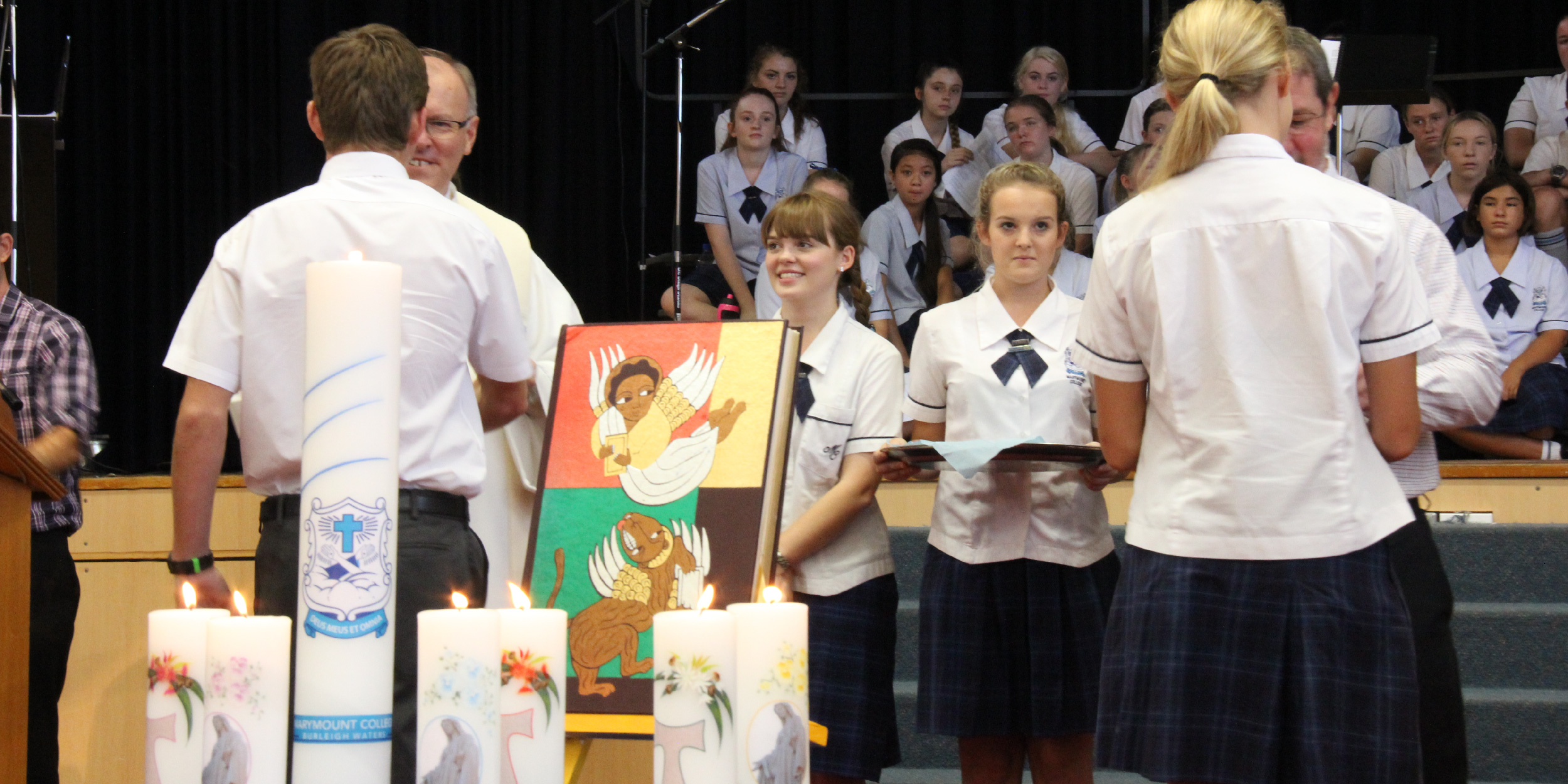
Year 11 Study of Religion Curriculum Overview
The aim of Religious Education at Marymount College is to provide Christian education in the Catholic tradition to students so that they may participate critically and authentically in faith contexts and wider society. The ‘Study of Religion’ course, as a Queensland Curriculum and Assessment Authority subject, can help students become more effective global citizens by developing their knowledge, skills and values, and developing their understanding through critical inquiry, debate and reflection, and empathetic engagement with the standpoint of others. Students explore and critique the role religion has played and continues to play in the world. They learn about religion by:
looking at it as part of complex social, political and cultural dialogues
engaging in conversation and debate
developing knowledge, analysis and critical thinking
exploring justice issues such as equity, gender, ethnicity, inclusivity
The senior secondary curriculum builds on the prior learning in Prep to Year 10, allowing students to use, consolidate and expand on what they have learned. Whilst incorporating the core components of The Nature and Significance of Religion, Australian Perspectives and World Religions, the four interrelated strands of Sacred Texts, Beliefs, Church and Christian Life also underpin the senior secondary curriculum, identifying core content that is to be taught and that students should learn.
In Term 1 of Year 11 students explore Ultimate Questions and Sacred Texts. They investigate the beliefs about origins of the universe, questions of meaning and purpose and learn about how formal religions such as Christianity, Buddhism, Islam and Judaism understand big issues related to life and death, the afterlife: heaven, hell, nirvana as examples. They study the texts of Christianity, Judaism, Islam and Buddhism focusing on the purposes of the texts and the impact of these on the lives of the adherents. In Terms 2 and 3 students study the topic Ritual where they learn about rites of passage in the world religions and the significance of ritual in Judaism and Buddhism. A field trip to a reformed synagogue and Buddhist temple shape the nature of the ethnographic investigation undertaken. In Term 4 students have the opportunity to discover Religion and the Arts and to examine and evaluate the role that various art forms have played in the past and in the contemporary world in the context of world religions.
YEAR 11 STUDY OF RELIGION SCOPE AND SEQUENCE 2022 .pdf
Year 11 and 12 SOR CURRICULUM OVERVIEWS.pdf
Year 11 Religion & Ethics Curriculum Overview
The aim of Religious Education at Marymount College is to provide Christian education in the Catholic tradition to students so that they may participate critically and authentically in faith contexts and wider society. As an Authority-registered subject designed for Year 11 and 12 students, it enhances students’ understanding of how personal beliefs, values and spiritual identity are shaped and influenced by factors such as family, culture, gender, race, class and economics. It allows for flexible programs of study that recognise the varied needs and interests of students investigating topics such as spirituality, purpose and destiny life choices, moral and ethical issues and justice. Within this study area, the focus is on students gaining knowledge and developing an ability to reflect on, critique and communicate this knowledge in relation to their lives and the world in which they live. The learning experiences and assessment tasks (are) practical and experiential. (Religion and Ethics Study Area Specification 2004 QSA p.1).
The senior secondary curriculum builds on the prior learning in Prep to Year 10, allowing students to use, consolidate and expand on what they have learned. Whilst incorporating the core components of The Nature and Significance of Religion, Australian Perspectives and World Religions, the four interrelated strands of Sacred Texts, Beliefs, Church and Christian Life also underpin the senior secondary curriculum, identifying core content that is to be taught and that students should learn.
In Term 1 of Year 11 students investigate The Australian Scene. They explore the diverse attitudes to religion and spirituality in Australia and examine the place of the Catholic Christian tradition in Australia. The unit also allows students to investigate the cultural and religious diversity and critique the apparent contradictions and stereotypes that are present in Australia today.
In Term 2 of Year 11 students study the Social Justice unit and learn that Social Justice issues
should always evoke a religious and ethical response. In this unit, students have the opportunity to investigate a diversity of local, national and international approaches to social justice concerns and link these with different ethical and religious responses. Students explore active means of participation in responding to social justice concerns and reflect on personal involvement in social justice outreach.
In Term 3 students explore Spirituality where they learn about spirituality and ritual in the Catholic Christian tradition. They will have the opportunity to explore, experience and express their own spirituality, and to learn about the spirituality of others.
In Term 4 students have the opportunity to study Peace and Conflict and to examine and evaluate practical questions of how to realise peace and justice in the world. This elective explores how religion and in particular the Catholic Christian tradition can play an important part in establishing, promoting and maintaining peace. It will give students opportunities to investigate the causes of war, violence and injustice; explore non-violent and peaceful approaches at all levels of the social organisation as well as the political, professional and personal behaviours necessary to bring about a more just and peaceful world.
YEAR 11 R&E SCOPE AND SEQUENCE 2022 YEAR OVERVIEW.pdf